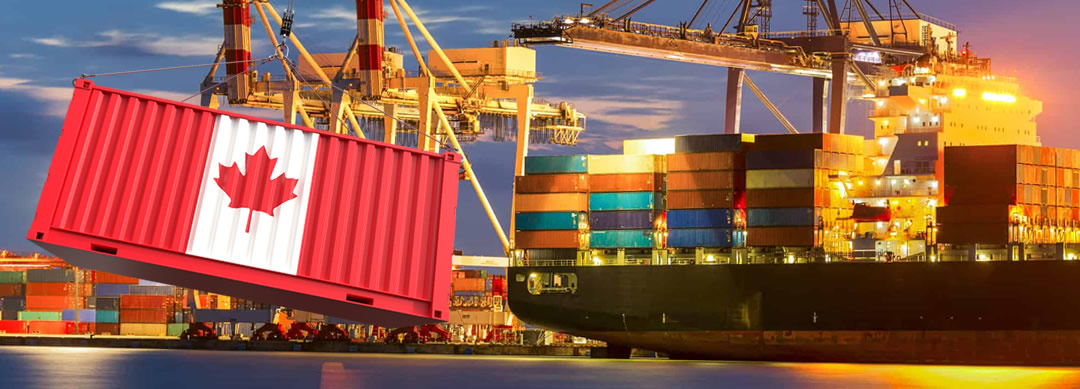The countries intensify contacts and plan for their post-covid-19 relationship
By Sérgio Siscaro
In addition to being a serious public health challenge, the spread of the novel coronavirus around the world has brought a series of uncertainties about what the post-pandemic world will look like. Aspects ranging from the countries’ economic recovery, to the reactivation of their businesses and the very form of interaction between people, with emphasis on remote communication channels, have been questioned.
Anticipating this debate, Brazil and Canada are already discussing ways to intensify their bilateral relationship after the Covid-19 crisis. In order to make these discussions feasible, the Chamber of Commerce Brazil-Canada (CCBC) has been promoting a series of virtual meetings, through which it brings together the communities of both countries. The main initiatives in this regard were the first two editions of the Brazil-Canada Talks – which, in a pioneering manner, brought together all the heads of diplomatic missions in Brazil and Canada to address the impact brought by the novel coronavirus.
“The main goal of these meetings in a virtual environment is to promote the exchange of experiences on the problems that are presented to the two countries in this very challenging moment. At the same time, this initiative seeks to facilitate the establishment of partnerships and strengthen the contact channels between Brazilians and Canadians,” says the director of Institutional Relations at the Chamber, Paulo de Castro Reis.
He says that other initiatives of this nature should be carried out by the CCBC, in order to prepare companies of both countries to plan their cooperation after the pandemic crisis has passed. “Despite this period of uncertainty, our number of new associates has increased. This shows a confidence that, once the pandemic is over, we will have a stronger Brazil-Canada cooperation scenario,” he adds.
High-Level Discussion
Presented in a webinar format, the events focused on the Brazilian public (in the Portuguese edition, held on May 6) and the Canadian public (in the English version, on May 8). On the agenda, important topics in the Brazil-Canada relationship were discussed, such as student exchange, business continuity in the post-crisis scenario and foreign trade trends, as well as the search for joint solutions to the Covid-19 crisis – such as possible cooperation research institutes in both countries.
The two editions of Brazil-Canada Talks were attended, on the Canadian side, by the ambassador in Brasilia, Jennifer May; the consul general in São Paulo, Heather Cameron; the consul general in Rio de Janeiro, Evelyne Coulombe; and the consul and head of the commercial sector of Canada in Brazil, Elise Racicot.
On the Brazilian side, the ambassador in Ottawa, Pedro Henrique Lopes Borio; the consul general in Toronto, Ana Lélia Benincá Beltrame, accompanied by the deputy consul Ademar Seabra, responsible for the commercial sector; the consul general in Montreal, Rubens Gama; and the consul general in Vancouver, Silvio Albuquerque e Silva attended.
High Commercial Exchange
The commercial exchange between the two countries has grown consistently since 2009. According to information from the trade balance, in that year, the flow of foreign trade between Brazil and Canada (adding exports and imports) totaled USD3.313 billion (FOB) – a volume that would rise by 51.9% in the following year. Ten years later, in 2019, total bilateral trade already reached USD5.645 billion (FOB) – 70.4% more than in 2009.
This trend remained firm in the first quarter of 2020. According to data from Quick Trade Facts, an analysis made by CCBC that details the exchange between Brazil and Canada, there was an increase of 7.1% in the foreign trade chain between January and March, in comparison with the same period of 2019 – from USD1.25 billion (FOB) to USD1.34 billion (FOB). It is worth noting the increase in Brazilian exports to Canada, which went from USD820 million (FOB) to USD943 million (FOB) – an increase of 15%.
The increase in the amounts handled in bilateral trade was strongly impacted by the exchange rate increase – a factor that became more relevant in March, the month that presented the most expressive result of the quarter. However, this same factor caused imports to shrink by 8% in the period, compared to the first three months of 2019.
The majority of sales to Canada consisted of semi-manufactured goods (51.6%), followed by manufactured goods (41.7%) and basic goods (6.6%). This distribution is quite different from that seen in 2019, when there was a preponderance of exports of manufactured goods (56.4%), followed by semi-manufactured goods (29.6%) and basic goods (14%).
Among the products on the list of exports to Brazil, it is worth highlighting the bullion doré – which is gold in raw form, melted without having undergone a process of refinement or industrialization. Between 2019 and 2020, sales of this product increased 158%, reaching USD278.4 million (FOB), which made it responsible for 29.5% of the revenues obtained in the period with foreign sales. It is worth noting that, in the context of the uncertainties brought about by the pandemic, gold has been more sought after by investors interested in protecting its assets, and the export trend of this product should continue.
New Opportunities
The behavioral changes brought about by the Covid-19 crisis may have already affected the trade balance between Brazil and Canada. “There was a big increase in soluble coffee exports – which may have been driven by the fact that people stopped drinking coffee on the street because of the pandemic,” says CCBC’s commercial intelligence coordinator, Andréa Mansano.
According to her, industries such as the pharmaceutical can contribute to maintaining the Brazil-Canada exchange in a post-crisis scenario; this trend was already indicated in the first quarter, possibly thanks to Brazilian imports of therapeutic products related to medical cannabis. “We have also seen an increase in purchases of products from the aeronautical industry, due to partnerships that Canadian companies have in Brazil, and the growth of the private aviation market in the country, with an increasing use of helicopters,” she adds.





